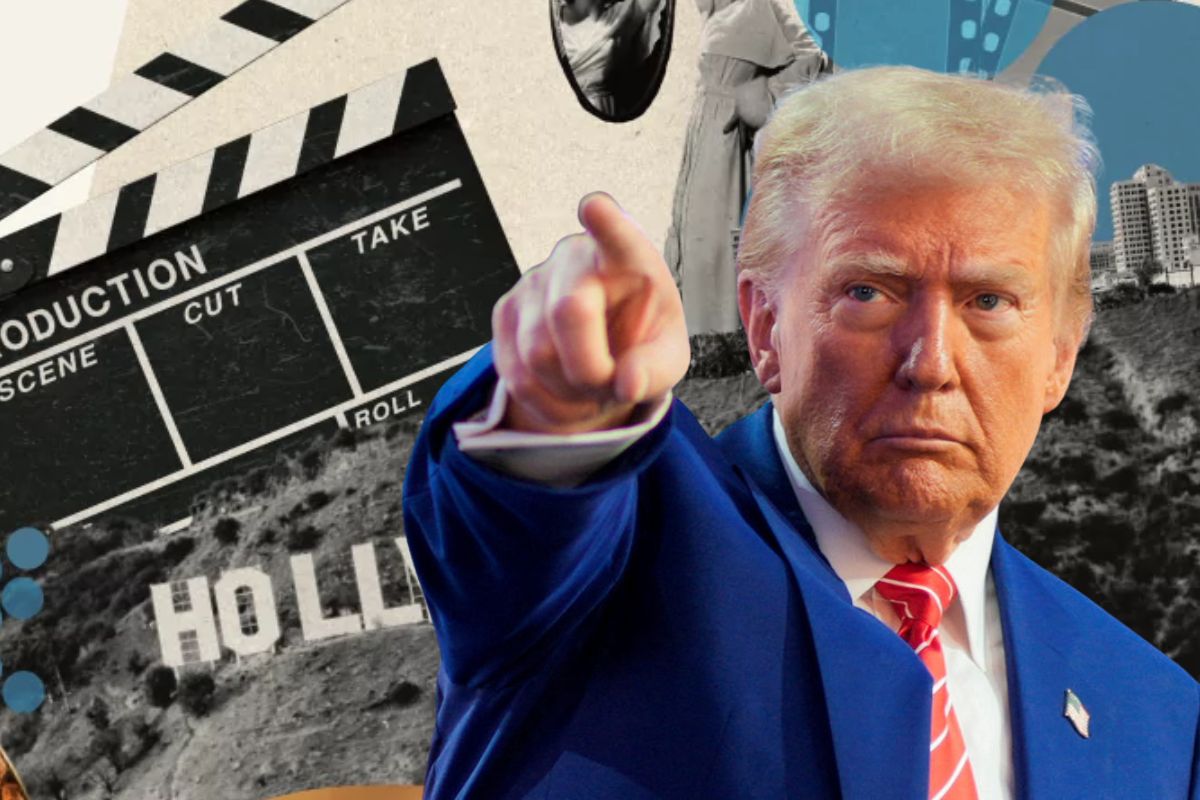
Published: : May 5, 2025, 11:16 AM

President Donald Trump announced on Sunday that he is instructing the Department of Commerce and the U.S. Trade Representative to introduce a 100% tariff on all films made outside the United States. Posting on his social media platform, Truth Social, he claimed that foreign film productions are damaging the American movie industry and pose a national security threat.
In his statement, Trump said that the U.S. film industry is “dying rapidly,” blaming other countries for offering attractive financial deals that encourage American filmmakers to shoot abroad. He also said that international films bring “messaging and propaganda” into the U.S., further harming the country’s cultural landscape. “We want movies made in America again,” he declared.
Trump’s announcement caused immediate concern across Hollywood. Studio executives rushed to organize urgent meetings to understand the potential impact of such a policy. There is widespread uncertainty about whether the President has the legal authority to impose such tariffs, how the process would work, and whether the rule would apply to American films shot overseas — including big-budget franchises like Avatar, The Avengers, and Mission: Impossible.
The announcement raised more questions than answers. For example, Trump focused solely on films and did not mention television shows, which are also frequently produced abroad for cost savings. In addition to lower production costs, many films are shot overseas for creative reasons — to capture authentic locations for stories set around the world. This is especially true for international franchises like James Bond and Fast and Furious.
The timing of this announcement is also significant. It comes just a week before the Cannes Film Festival, where many American producers and studios travel to sell their movies to international markets. The proposed tariffs have caused concern that it could complicate these business deals or scare off foreign partners.
It is also unclear whether this tariff would apply only to American-led projects filmed overseas or to all foreign films entering the U.S. market. The lack of specific details has left studios confused and looking for guidance.
Interestingly, Trump made this move after appointing actors Sylvester Stallone, Mel Gibson, and Jon Voight as “special ambassadors” to the American film industry earlier this year. However, there has been no major news about their role or any action taken by them since.
Despite Trump's claim that Hollywood is failing, box office figures in 2025 tell a different story. Domestic earnings have risen by nearly 16% compared to 2024, thanks to successful releases like A Minecraft Movie, Sinners, and Thunderbolts. However, film and TV production in the U.S. has still not fully recovered after the 2023 actors’ and writers’ strikes. Studios have also been cutting costs and reducing their number of projects, which has contributed to a 40% drop in production activity within the U.S.
President Trump’s proposed tariffs, if implemented, could significantly change the way the American film industry operates — potentially affecting where movies are made, how they are distributed, and how international collaborations are handled.